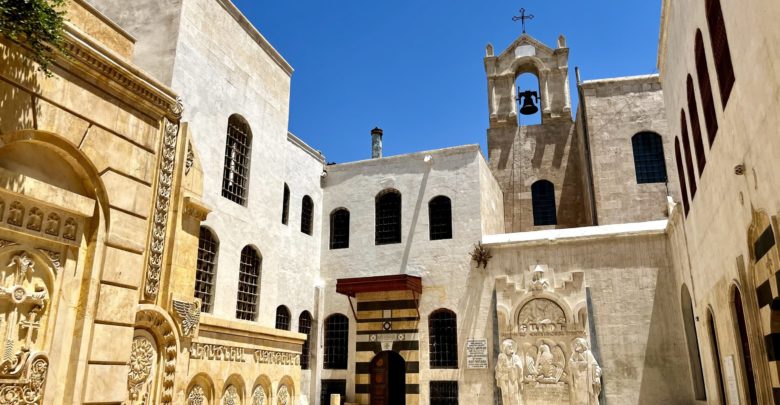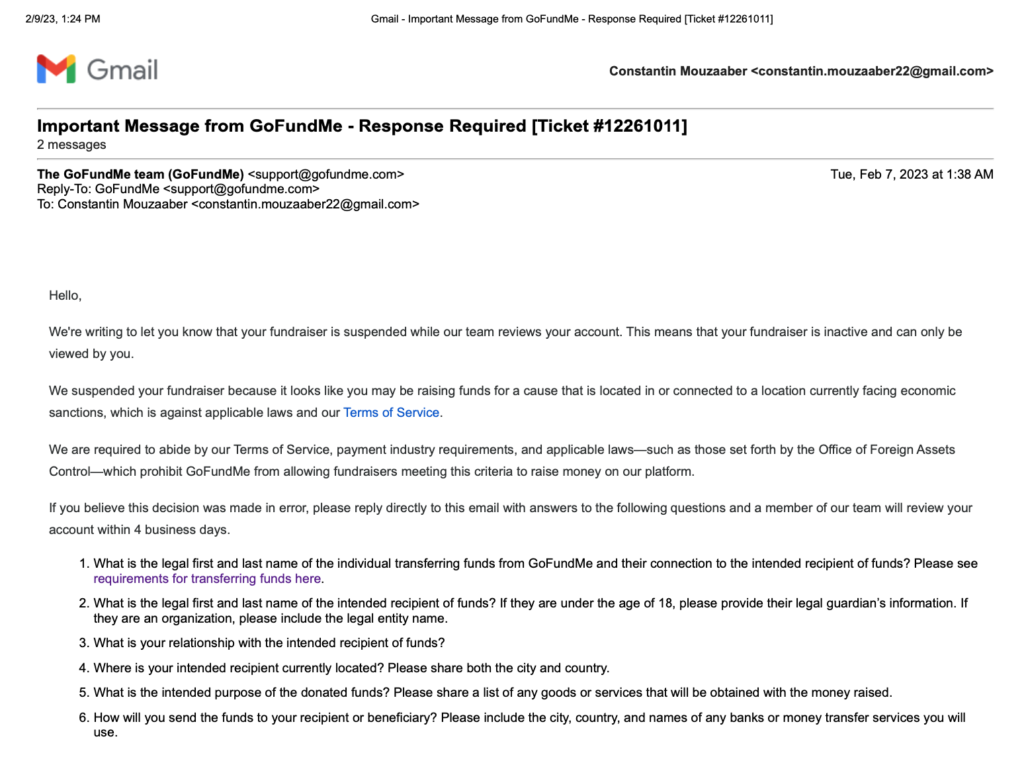 Cynthia Muzaber
Cynthia Muzaber The biggest disaster in the last century, in the form of a magnitude 7.8 earthquake, struck Syria and Turkey on February 6. More than 50,000 people have been killed, and tens of thousands of people are injured.
The devastating earthquake is in no doubt a tragedy for both countries. But, Syria is left neglected and excluded from international aid and social awareness. The international community is certainly capable of helping Syrian people lift their cities off the ground by sending aid, necessary equipment, and vital resources. The Syrian people should not be deprived of humanitarian aid as a sacrifice to international political agendas.
Syrians are suffering the inhumane consequences of a decade long war. Since well before the earthquake, the population has been suffering instability and an economic crisis — over 90 per cent of the population lives below the poverty line. Health-care institutions and other essential facilities currently lack necessary resources due to the sanctions imposed on the country. In an attempt to survive, citizens hold on to memories, and hopes of a better and fair future.
They’re clinging to a fictitious stability to stay sane.
The majority of the Syrian population presently struggles to satisfy their most basic needs, like staying safe. Despite enormous challenges, Syrian people strive to embody immense resilience to carry on with their lives.
Young university students, like you and I, pursue their education with a deteriorating infrastructure. Even Syrian families that were once privileged and living comfortably, now wait to receive a text-message letting them know their biweekly allowance of necessities like bread and gasoline is momentarily available.
I am from Aleppo, one of the world’s oldest continuously inhabited cities that’s over 4,000 years old. Aleppo bore the war’s fiercest battle zones. In Syria, over three hundred thousand people have been killed and over 13 million are displaced. So far, the recent natural disaster took away more than five thousand lives and five million humans may be homeless after the quake stripped people from their homes.
Whatever vocabulary used is an understatement to describe the extent of the destruction in Syria.
Above all else, being aware of what is happening in Syria is important. I ask you not to distance yourself from the tragedy. The Middle East, just like any other place, is not immune to grief, loss, or pain — experiences that should never be normalized. People cannot be expected to tolerate tragedies and insufferable conditions over time, and they never should.
Scrolling away from such news is a privilege that not many can take pleasure in. Maybe you have grown numb to tragedies in Syria, if you are even aware of the immense annihaltion it has endured at all. However you are not as distant from the events as you would like to think.
Even though the tragedy took place thousands of kilometres away from you, its destruction is rooted well beyond the countries’ borders. Hundreds of us — the diaspora population, Syrian-Canadian U of A students — cross your paths everyday. Like you, we also have dreams and accomplishments.
While you read the numbers of death tolls on your screen, our worst fears take over us as we wait for our loved ones to answer our phone calls after every tragedy. Sitting in the same campus common spaces as you, the time stops as we witness our childhood homes collapse, and loved ones suffer from humanitarian crises.
We take it upon ourselves to be our home’s voice in the Western world. We became anxious to call upon social justice and humanitarian aid from the international community.
However, our call to save lives in an extreme time of need is apparently debatable. The urgent need to save people becomes reduced to political or economic factors that dehumanize the cause, making it seem up for discussion — a tendency that has been seen in our own student body.
Platforms like GoFundMe are a supposed resource that claim they support people in need — their website even says “[our mission is] to provide fast and effective support to people impacted by disaster.”
However, when my brother and I posted our fundraising campaign, the platform immediately suspended it, citing the oppressive economic sanctions imposed on the region. They dismissed the urgent need to save Aleppo’s victims of the recent earthquake. Despite our dedication to launch a fundraising campaign to help those in immediate need, GoFundMe dismissed the cause in the name of economic sanctions imposed on the area — sanctions that stem from political agendas of western countries.

Moreover, based on my personal experience and that of my community members, we have found that our attempts to raise awareness about the devastating crisis in Syria have continuously failed. I have noticed that social media platforms are actively hiding — shadowbanning — shared posts and texts that mention the devastating impact of the conflict in Syria. As a result, the majority of Canadians are unaware of the immense distress the diaspora community experiences.
Evidently, Syria is the neglected land where human dignity is oversought and crimes against humanity are justified.
Unfortunately, the same redundant questions, especially raised amid the war crisis, still have to be asked today. Using vague language and superficial answers in an attempt to justify the inhumane neglect of Syrians does not suffice.
An article written in 2016, Stop Pretending To Care About Aleppo, raised confrontational questions whose answers remain unknown, “where was the necessary humanitarian aid needed to help these innocent victims?” Seven years later, and I’m still asking the same questions amid another humanitarian crisis.
Do not underestimate your power or undermine your role in initiating much needed change. A call to action takes many forms: acknowledge your privilege, raise awareness, sympathize, and donate to fundraisers. No excuse justifies depriving people of basic essential needs, especially in crucial times of crisis — which are evidently frequent in the Middle East.




